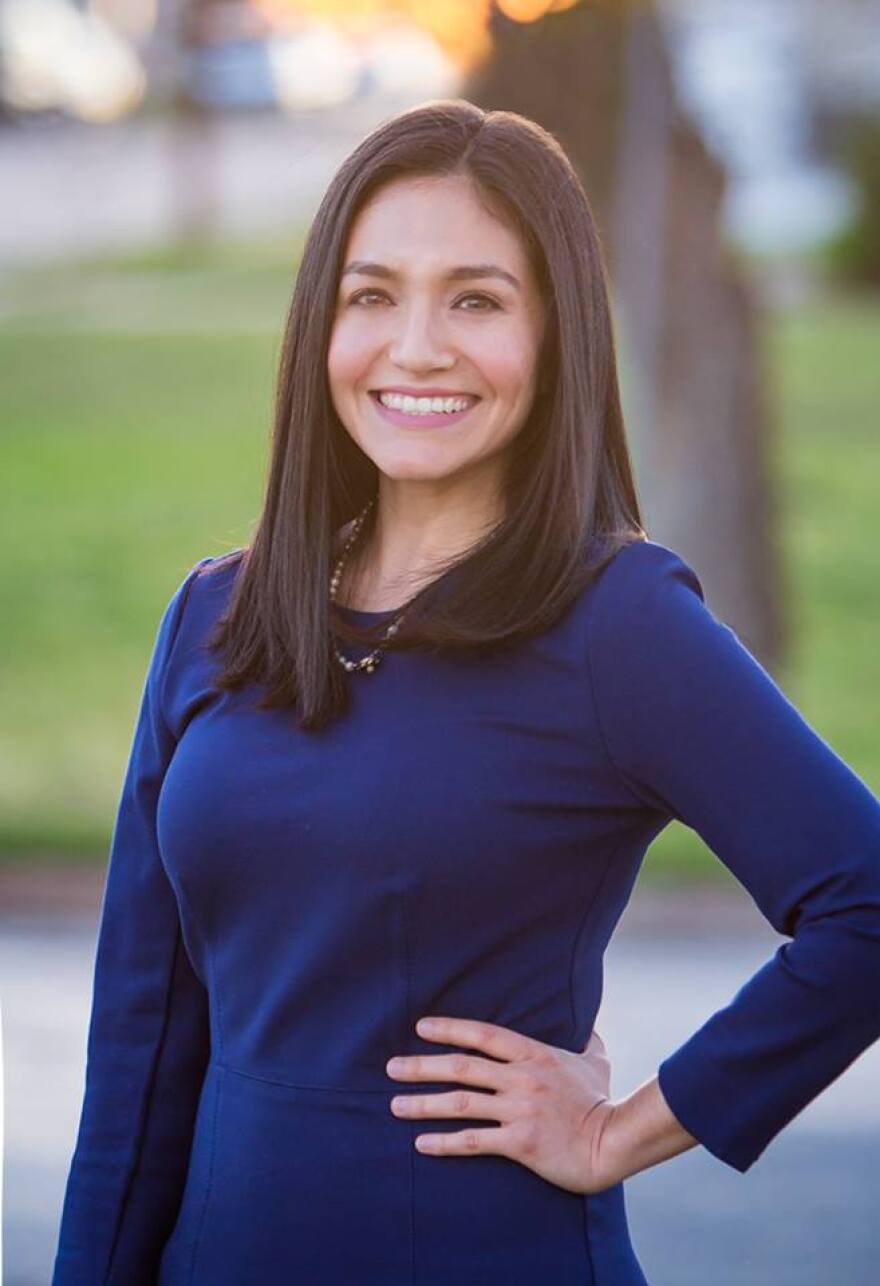More than 10 million Hispanics live in Texas – but in many parts of the state, elected officials don’t reflect that diversity.
There are efforts underway not only to encourage Hispanics to run for office, but also to give them the tools they need to be successful.
When Claudia Sandoval first thought about running for office, she figured she’d just hand out flyers and talk with residents. Then, she enrolled in a leadership academy where she faced reality.
Sandoval learned she’d have to hold fundraising events and have to come up with a plan about how to communicate with voters.
“Typically we don't come from families who've been involved in politics, right?” Sandoval says. “I'm a first-generation Mexican-American, and my family didn't do that. I think it's just learning that it's not only something only for a certain group of people.”
The Latino Center for Leadership Development is trying to help out people like Sandoval who didn’t grow up around politics.
This is the second year for the program. It includes mostly Latinos, and it teaches them how to run for office, how to run a campaign, fundraise and once they get into office, how to be successful.

Gabe Sanchez says this kind of effort is vital for growing a more diverse group of elected officials. He’s a professor at the University of New Mexico and principal at the survey firm Latino Decisions.
“It starts really at the bottom,” he says. “A lot of folks will take a look at the higher level offices and say what's it going to take to have more Latinos in Congress? Or more Latino governors? But remember, those folks all start off somewhere. Typically, much lower on the ballot. So we really need a pool of people to start running for city council, school boards that will eventually acquire the political skills and the name recognition to be on congressional races, governor races, etc.”
Cities with large Latino populations have small representation
Latinos make up nearly 20 percent of the U.S. population – but only one percent of officials are Latino, according to the Latino Victory Project.
Texas State House Representative Cesar Blanco represents El Paso.
“That’s a huge problem for us,” Blanco said at an October forum. “Because if you’re not at the policy decision-making table, you’re the lunch.”
Launching a political career can be difficult for anyone. That’s one of the reasons why the Latino Center for Leadership Development set up this academy.
After Sandoval went through the training, she ran for city council in her hometown of Cockrell Hill, and she won.
Sandoval’s one of three Latinos on the council, and half of the council is Latino. In Cockrell Hill, Latinos make up about 85 percent of the population.
Cockrell Hill’s council reflects the city’s diversity more so than other elected groups in North Texas.
Grand Prairie and Irving are both more than 40 percent Hispanic, but there are no Latinos on either city council. Dallas is also 40 percent Hispanic and two of 14 council seats are occupied by Latinos.
In Fort Worth?
“I'm the only Hispanic on the city council in a city that is 34 percent Latino,” council member Sal Espino says. ”We need more diverse folks on the council, I think a Hispanic can run in any council district and be a good candidate — he or she. In the whole history of Fort Worth, they've only had three Latinos on the council. All from District 2.”
Lack of political education, funding keep number of Latinos in office low
There's a number of reasons why there aren’t more Latinos running for office. Espino says it comes down to education – Latinos need to learn more about how politics work.
Another reason? Money.
Sanchez, the New Mexico professor, says the Citizens United Supreme Court case changed the game. The 2010 ruling says it’s OK for corporations and unions to spend as much as they want on political ads as long as they don’t coordinate with campaigns.
“It's not just congress or statewide offices like governor, lieutenant governor that require financial resources,” he says. “Even thinking about county commission, running for state representative, those races are becoming expensive. That really requires a Latino to look in the mirror and say, 'How can I fundraise, who in my network can provide resources for my campaign?' I think that closes the door for a lot of folks who might be great candidates, who just don't see themselves being able to raise enough money.”
That’s one of the issues Claudia Sandoval faced when running for her spot. She had no idea where the money was going to come from. But being in the leadership academy and around other people with similar interests was a big help, and pushed her.
“It was awesome to be able to go through your first time running with three other people who were going through the exact same thing,” Sandoval says. “Because we would text each other like, 'Hey, your campaign finance report is due in two days.' So we were going through the same things, which was so nice to have, just that support and bounce ideas off each other.”
Sandoval’s gotten a taste for politics, but for now though, she doesn’t plan on running for higher office. She’s happy staying in community politics and serving her hometown.







